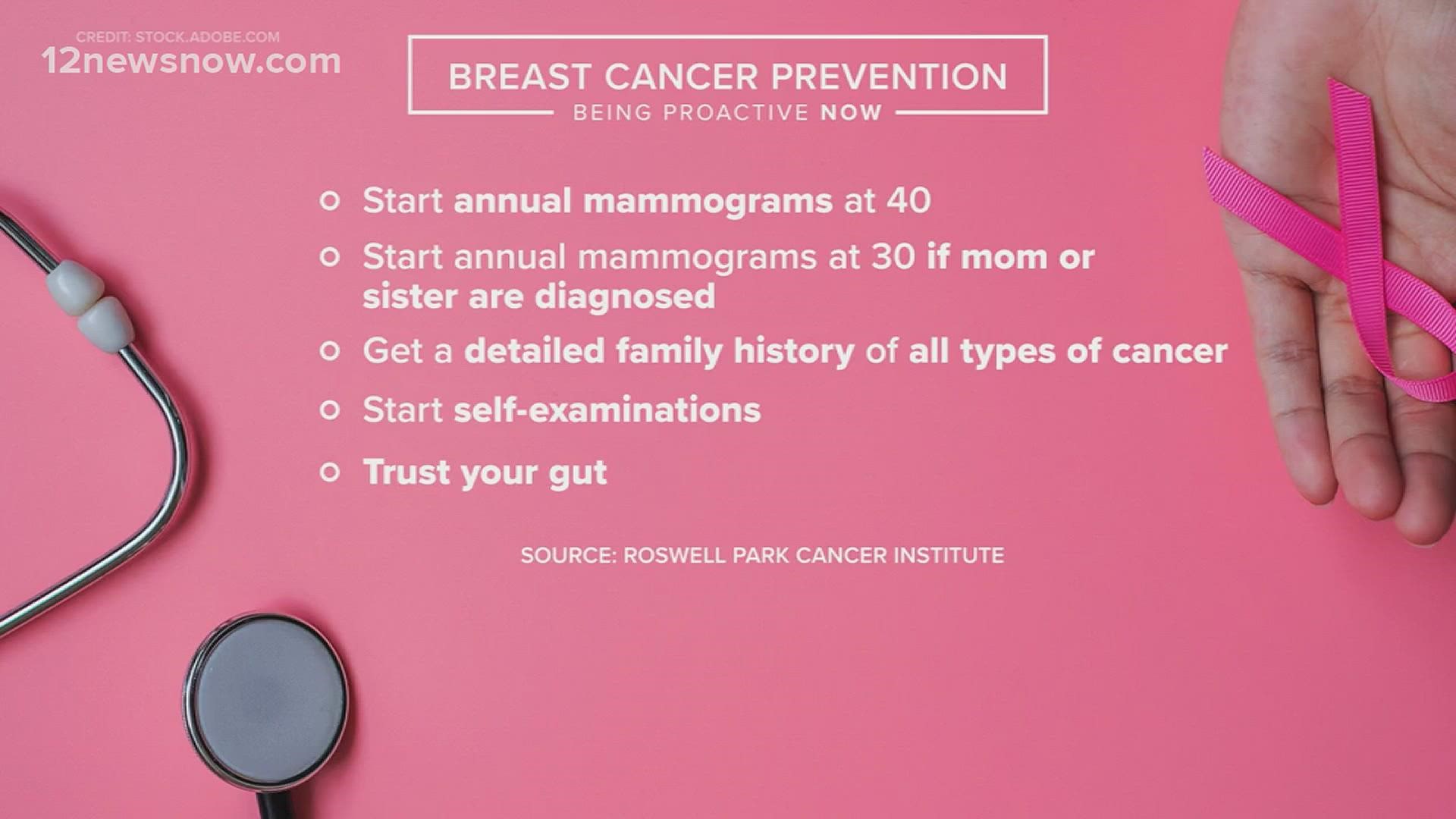BEAUMONT, Texas — The third Friday of October is National Mammography Day, which serves as a reminder that the best defense is early detection and there are things women can do right now to be proactive about prevention.
The Roswell Park Cancer Institute says women should start their annual mammograms at the age of 40. Routine mammography saves lives, reducing a woman’s risk of dying from breast cancer by 30-50%.
It's a good idea to get a detailed family history of all types of cancer, start self-examinations periodically and most importantly, trust your gut if you suspect anything is wrong.
BRCA1 AND BRCA2 are genes that have been found to impact a person’s chance of developing certain cancers, including breast, ovarian and prostate cancer.
23andMe scientist Ruth Tennen along with 23andMe customer, children's author and blogger Gina Burris, spoke exclusivity with 12News about the benefits of genetic health tests and how they can save someone's life.
"The average woman in the US has a 13% chance of developing breast cancer during her lifetime, but for a women with the BRCA variant, that number is about 45-85% by the time she turns 70,” said Tennen.
One in 400 of the general population have the BRCA variant, but it's more common in certain types of people like the Ashkenazi Jewish demographic, where 1 in 40 have the variant.
At the age of 46 with no known family history of breast or ovarian cancer, Burris discovered in her 23andMe health report that she carries a BRCA variant.
"Having the knowledge of carrying this gene provided me the opportunity to play an offensive role when it came to my health care versus a defensive role," she said.
After making this discovery, Burris worked closely with a team of medical professionals and made the decision to take a preventative path.
Since November of 2020, she has undergone a bilateral salpingo-oophorectomy and double mastectomy straight to reconstruction.
“I did have a physician at one point look at me and say, 'That 23andMe assessment saved your life,'” Burris said.
Since the mutation is hereditary, Burris' son has also tested positive for carrying the BRCA mutation.
"We believe that knowledge is power and by having this information we are able to take a proactive role versus a reactive role when it comes to our health care," she said.
Now, Burris feels compelled to share her own story and hopefully help other men and women before it's too late.
MORE | Gina Burris' blog
At least 80% of people who have the BRCA gene don't know they have one, because they don't have a strong family history or know of any history that would qualify them for clinical genetic testing through a doctor.
"23andMe is one way to help catch some of these people who may slip through cracks of traditional genetic testing," Tennin said.
Although very rare, men can also be diagnosed with breast cancer. Men with family history should talk to their doctors to see if screenings may be necessary.

